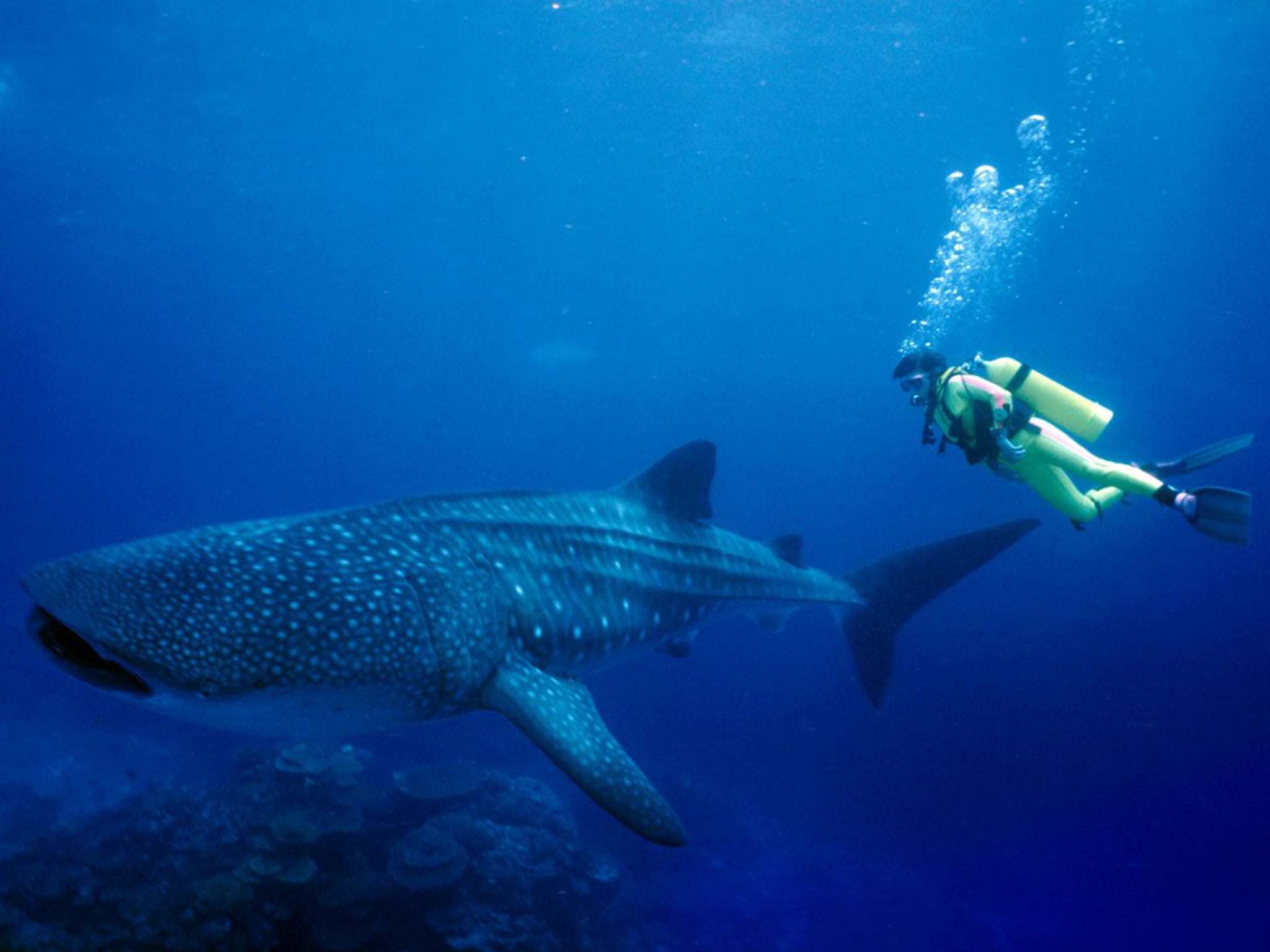Whale sharks to be tagged to save species
Technology will uncover the mating secrets of these enigmatic giants

It is the largest fish in the ocean with some individuals reaching sizes of up to 65ft (18m) long and weighing more than 30 tonnes, but whale sharks remain one of the enigmas of the deep.
There are fears that the gentle giant, whose flesh is prized in countries such as China, India and the Philippines, is being slowly driven towards extinction. And so little is known about them that there is huge uncertainty about how their decline can be arrested.
Scientists and conservationists hope to safeguard the giant creatures' future by electronically tagging them to uncover their secrets. The project is being supported by the Galapagos Conservation Trust, based in London. Spokesman Peter Haskell said: "We are starting to build a picture of the whale shark's global migration."
Divers from the Galapagos Whale Shark Trust plan to tag both males and females off the coast of Peru to trace where they go and what they do. One of their main hopes is that it will reveal where in the ocean the species courts and mates, a key piece of information in the fight to understand and protect it.
"We don't know where they mate, we don't know where they give birth and we don't know where they spend the first couple of years of their lives," said Dr Alex Hearn, of the Turtle Island Restoration Network and one of the researchers taking part in the Galapagos Whale Shark Trust project.
Added urgency has been injected into this research by the rate at which whale sharks are being caught and eaten. While most deliberate fishing for them has been halted, they are still taken in large numbers as a bycatch. It is also suspected that there is illegal fishing targeting them.
In China, where the bulk of whale sharks are processed for the food industry, a single factory in Puqi has the capacity to process up to 600 carcasses each year.
Each carcass can be worth as much as £19,000 and the best fins, some desired as ornaments while others go into making soup, can sell for several thousand pounds each. At least 1,000 whale sharks are processed in China each year and quite possibly many more.
It was recently discovered that the adult whale sharks in the Galapagos are all females, feeding for a couple of days before heading out into the open ocean. Most have distended underbellies which leads researchers to suspect that they are pregnant.
Dr Hearn and other researchers suspect females give birth far out in the ocean, probably in deep water and most likely one at a time. They speculate that the young live close to the seabed in deep-water areas for two years before migrating.
Join our commenting forum
Join thought-provoking conversations, follow other Independent readers and see their replies
Comments
Bookmark popover
Removed from bookmarks